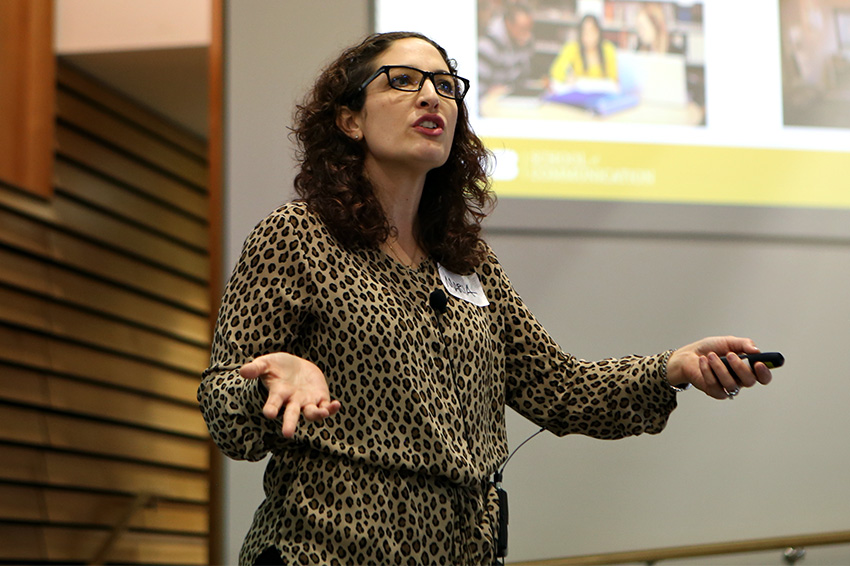Half of American college students have established mental health issues by age 14, and most of those issues become evident by college, said health communications researcher Maria Venetis during a keynote speech Thursday.
Venetis spoke at the Mental Health Communication Symposium on campus, which was hosted by the UT’s Center for Health Communication. Her talk focused on college students and their interactions with their friends regarding mental illnesses, which she defined as “conditions that involve changes in thinking, emotion or behavior.”
Venetis, who studies mental health communication among college students, said she chose to focus on the subject because the college lifestyle involves a lot of social interaction: studying together, eating together or sleeping in the same room. She said it can be hard to hide mental health issues while spending so much time around people.
Venetis said students have a hard time disclosing their mental illnesses with their friends because they don’t know how to bring it up, they don’t want their friends to view them differently or they are afraid of how their friends will react after being informed of mental health conditions. She said students may choose to tell a friend about their mental health for multiple reasons, from a desire to share personal information with their loved ones or because they feel forced to disclose an apparent mental illness.
Biology freshman Zachary Isbell said he attended the keynote to learn how to help someone in his life who struggles with mental illness.
“One of my very close friends is affected by multiple mental illnesses and I wanted to educate myself more on the topic of mental illness,” Isbell said.
Venetis said social media, which plays a big role in college students’ lives, can be both helpful and detrimental for mental illness.
“It’s helpful because it lets people know they’re not alone,” Venetis said. “But when everyone is tweeting about their anxiety, when someone says they have generalized anxiety disorder, the response they get is ‘Oh, so do I.’”
Undeclared freshman Deserea Scott-Wright said she attended the speech to determine if her concerns about her personal mental health are worth looking into.
“I want to learn more about mental health all around and find out if I should take action to improve my mental health,” Scott-Wright said.





















